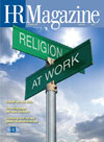 A stipulated consent judgment is one of the two main types of voluntary compliance agreements. The less formal administrative settlement is the other. Although there are more formalities that must be followed with a stipulated consent judgment, it is a more effective bar to litigation.
A stipulated consent judgment is one of the two main types of voluntary compliance agreements. The less formal administrative settlement is the other. Although there are more formalities that must be followed with a stipulated consent judgment, it is a more effective bar to litigation.
A stipulated consent judgment requires the filing of an actual lawsuit by the U.S. Department of Labor (DOL) against the company. At the same time the lawsuit is filed, however, the parties also file a stipulated consent judgment in which the parties agree to resolve the case on the terms contained in the stipulated consent judgment. The agreement is subject to court approval and involves the actual entry of a judgment against the employer once the agreement is approved by the court. As a practical matter, most judges quickly approve these types of agreements and rarely hold a fairness hearing to determine if the settlement is fair and reasonable. The judgment becomes a matter of public record and is typically available by searching the federal docket using the PACER system. Additionally, the DOL typically issues a press release announcing the settlement. As a result, an employer should not expect that this type of settlement will be confidential.
The principal advantage offered by a stipulated consent judgment is that this type of resolution offers the employer the greatest protection from subsequent claims by employees. When the DOL files an enforcement action, the act of filing the complaint eliminates an employee’s private right to bring an action for the same claim. And in an enforcement action it is the DOL, not the employee, who determines what is a fair resolution of the claims. Indeed, courts have consistently recognized that an employee does not have the right to contest the DOL’s determination of the value of an employee’s claim.
However, a key disadvantage is that a stipulated consent judgment will typically include an injunction. Historically, the DOL insists on injunctive language as a nonnegotiable, essential term of any such agreement. The injunction typically blocks an employer from violating the Fair Labor Standards Act (FLSA) in the future. An injunction is a powerful tool that allows the DOL to argue to the court that the employer is in contempt of a court order if the employer violates the FLSA in the future. As a result, an employer who enters into a stipulated consent judgment must have strong compliance mechanisms in place to ensure it is not vulnerable to a contempt proceeding in the future.
An alternative to a stipulated consent judgment is the less formal administrative settlement in which the DOL agrees to supervise the payment of back wages pursuant to Section 216(c) of the FLSA and back wage payments are accompanied by a back-wage receipt and release form referred to as a WH-58. The key advantage of this method lies in its informality. This method does not require court involvement and the DOL generally will not insist on any type of injunction in the agreement.
In addition, this type of administrative settlement usually receives less press attention, although the DOL will often issue a press release if the agreement covers a significant number of employees.
The key disadvantage of this type of settlement is that only those employees who accept the offered back wages are barred from bringing a lawsuit against the employer. As a result, even though the DOL and the employer have agreed to resolve the matter, an employee can disagree, reject the employer’s payment and pursue a private claim. In the past, most employees have accepted DOL supervised payments and not pursued private litigation. This trend seems to be changing as employees become more familiar with their FLSA rights and more plaintiffs’ lawyers aggressively advertise their services related to FLSA claims.
_____________________________________________
The author, an attorney at Littler Mendelson in Atlanta, is a former HR executive with extensive experience in wage-and-hour issues, employee relations and general employment matters.
Web Extras
SHRM article: New Friends in the Lion’s Den (HR Magazine)
Advertisement
An organization run by AI is not a futuristic concept. Such technology is already a part of many workplaces and will continue to shape the labor market and HR. Here's how employers and employees can successfully manage generative AI and other AI-powered systems.
Advertisement


